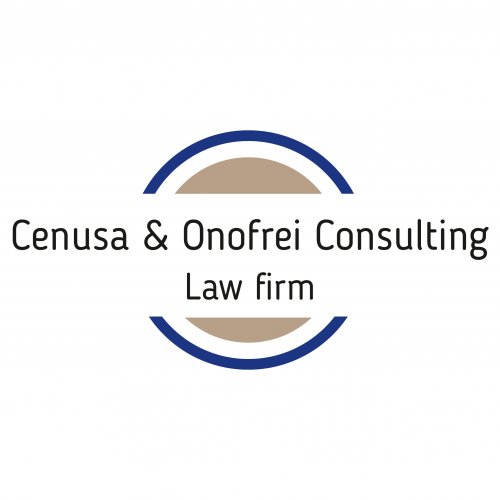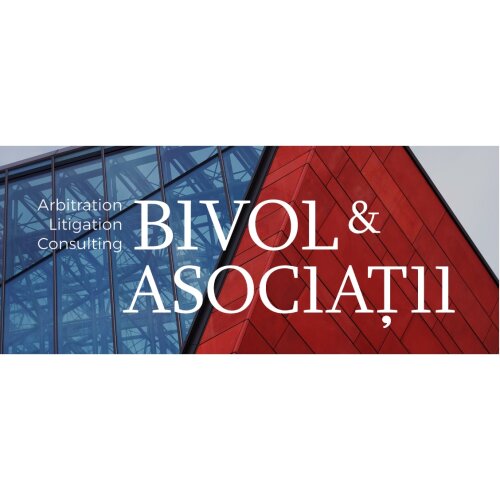Best Administrative Lawyers in Republic of Moldova
Share your needs with us, get contacted by law firms.
Free. Takes 2 min.
Or refine your search by selecting a city:
List of the best lawyers in Republic of Moldova
About Administrative Law in Republic of Moldova
Administrative law in the Republic of Moldova governs the relationship between individuals and governmental bodies, focusing on the operations, regulations, and decisions of public administration. This body of law outlines the processes through which the government exercises its authority and ensures that public administration acts lawfully, efficiently, and fairly. Administrative law is integral for maintaining transparency, accountability, and justice within the realms of public services and the bureaucracy.
Why You May Need a Lawyer
Individuals and businesses may require legal assistance in administrative matters for several reasons. Common situations include contesting government decisions, obtaining permits and licenses, dealing with public procurements, and handling disputes with regulatory agencies. Administrative lawyers help navigate the complex procedures of administrative bodies, ensure compliance with regulations, and protect clients' rights in hearings or appeals against governmental actions.
Local Laws Overview
The administrative law framework in Moldova is primarily guided by the Administrative Code, which establishes general principles for administrative procedures. Key aspects include:
- The principle of legality, which requires that all administrative actions must be based on law.
- The principle of transparency, ensuring public access to information and decision-making processes.
- Procedural fairness, mandating fair hearings and right to appeal administrative decisions.
- Efficiency and accountability in public service delivery and resource use.
The system also encompasses laws related to public procurement, taxation, and environmental regulations, among others.
Frequently Asked Questions
What is the role of an administrative lawyer in Moldova?
An administrative lawyer assists clients in navigating legal and procedural complexities involving governmental entities, representing them in disputes, and ensuring compliance with administrative laws and regulations.
How can I appeal a decision made by a government agency?
Decisions by government agencies can often be appealed through an administrative tribunal or court. It is advisable to engage a lawyer to understand the specific procedures and time frames for your case.
What are my rights when dealing with administrative bodies in Moldova?
Individuals have the right to a fair process, which includes timely and clear communication, access to information, and the right to appeal decisions made by administrative bodies.
Are there specific deadlines for administrative appeals?
Yes, there are typically strict deadlines for filing appeals in administrative cases. These can vary depending on the specific law or regulation involved.
What is the Administrative Code, and why is it important?
The Administrative Code is a comprehensive legal framework governing administrative procedures and the functioning of public administration in Moldova. It establishes the rules and principles guiding the actions of administrative bodies.
Can I represent myself in administrative proceedings?
While you can represent yourself, it is often beneficial to have legal representation due to the complexity of administrative law and proceedings.
How do public procurements work under Moldovan administrative law?
Public procurements are regulated processes through which public authorities purchase goods, services, or works from private sector entities, guided by principles of transparency, competition, and fairness.
What should I do if I suspect a government official acted unlawfully?
You may file a complaint with the relevant authority, and potentially seek legal assistance to understand your options for legal remedies or appeals.
What is the role of the Ombudsman in administrative matters?
The Ombudsman acts as an independent institution overseeing the legality and fairness of administrative actions, handling complaints from the public regarding potential malpractices.
How are disputes between individuals and administrative bodies resolved?
Disputes are resolved through administrative tribunals, courts, or through alternative dispute resolution mechanisms, such as mediation.
Additional Resources
For those seeking additional information or assistance, consider the following resources:
- The Ministry of Justice of Moldova for information on the administrative code and regulations.
- The National Agency for the Protection of Competition for public procurement-related inquiries.
- The Office of the Ombudsman for complaints regarding administrative fairness and justice.
Next Steps
If you require legal assistance in administrative matters, consider taking the following steps:
- Identify the specific administrative issue or dispute you are facing.
- Gather relevant documentation and evidence related to your case.
- Consult with an experienced administrative lawyer who can offer guidance on your rights and recommend strategies for your case.
- Prepare for possible hearings, appeals, and negotiations with the assistance of legal counsel.
Taking informed actions and seeking reliable legal advice can significantly enhance your ability to address administrative challenges effectively.
Lawzana helps you find the best lawyers and law firms in Republic of Moldova through a curated and pre-screened list of qualified legal professionals. Our platform offers rankings and detailed profiles of attorneys and law firms, allowing you to compare based on practice areas, including Administrative, experience, and client feedback.
Each profile includes a description of the firm's areas of practice, client reviews, team members and partners, year of establishment, spoken languages, office locations, contact information, social media presence, and any published articles or resources. Most firms on our platform speak English and are experienced in both local and international legal matters.
Get a quote from top-rated law firms in Republic of Moldova — quickly, securely, and without unnecessary hassle.
Disclaimer:
The information provided on this page is for general informational purposes only and does not constitute legal advice. While we strive to ensure the accuracy and relevance of the content, legal information may change over time, and interpretations of the law can vary. You should always consult with a qualified legal professional for advice specific to your situation.
We disclaim all liability for actions taken or not taken based on the content of this page. If you believe any information is incorrect or outdated, please contact us, and we will review and update it where appropriate.
Browse administrative law firms by city in Republic of Moldova
Refine your search by selecting a city.















